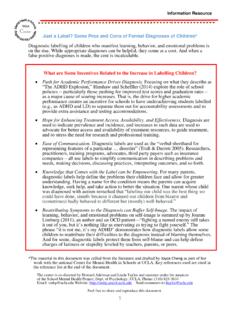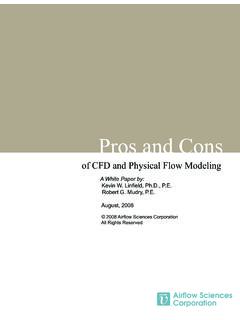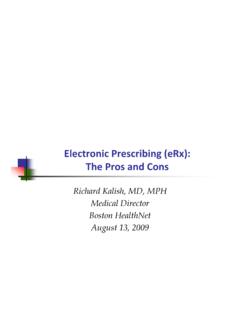Transcription of Litigation v. Arbitration: Pros and Cons - Best Lawyers
1 Litigation v. arbitration : pros and ConsBy Brenton D. SoderstrumPROS:Speed: Disputes which are taken to arbitration can be resolved faster than a lawsuit in state court or in federal court. In general, lawsuits take 9 months to 12 months to go to trial assuming that the case does not get continued. Arbitrations can take place in as little as 60 days. Under the American arbitration Association ( AAA ) rules, an arbitration case involving less than $75,000 can be handled on a fast track proceeding which requires that the hearing take place 60 - 90 days after the arbitration is filed. Litigation trial dates will generally be unavailable from the court until 9 months from the date of Costs: Because many arbitrations take quite a bit less time than a lawsuit in district court, they will end up being less expensive than a case that goes to trial.
2 Attorneys have less time to develop the case for final resolution. Arbitrations will allow only limited discovery , which is the process of investigating a claim through depositions, written interrogatories and requests for production of documents. In most circumstances, arbitration only allows requests for production of documents in the inves-tigation of the Decision-Makers: Judges will often know very little about certain types of cases. This will often make it difficult for the attorney to effectively present the case. Even if the judge does have some experience in that area of law, the jury, if used, will know nothing about the area of law that is applicable to the dispute.
3 Arbitrations on the other hand, involve a selection of a panel of arbitrators who are either attorneys who practice in a certain area or other industry professionals and are very famil-iar with that area. This can often be a great benefit in complex : arbitration will provide more privacy to the parties than Litigation . The arbitration dispute itself and the terms of any award frequently remain confidential. Litigation in district court can often lead to media Selection: The parties in an arbitration can agree to hold the arbitration in a certain location regardless of where the ac-tion took place. This often results in the party who drafts the arbitration clause having all the arbitrations in a certain city or state in which they are : Lack of Discovery: Limited discovery can keep your costs down, but it can also make it more difficult to try the case effectively.
4 Attorneys can achieve the best results for their clients when they have as much relevant information as they can possibly obtain. The best way to obtain this information is through the depositions of people with knowledge. Arbitrations can lead to the parties presenting the dispute to the arbitration panel without fully know-ing the underlying facts in the case. The inability to analyze the information can sometimes work to the client s Appeal: arbitration decisions generally cannot be appealed because they were not part of the court system originally. The parties to an arbitration agree that the arbitrator s decision will be final. Even if the arbitrator makes the wrong decision as a matter of law, misunderstands the facts, or just makes the wrong decision, the case cannot be appealed.
5 However, in very lim-ited situations, a party may petition the district court to review an arbitration decision but it can generally only be argued that the arbitrator exceeded his or her authority or that the decision was obtained through fraud, corruption or some other illegal means. This is extremely of Disputes: It is easier for a party to file a request for arbitration than it is to file a petition or complaint in district court. As a result, the availability of arbitration could result in an increase in disputes that are being submitted to a third party for business or company who drafts contractual agreements needs to consider the advantages and disadvantages of arbitra-tion compared to Litigation .
6 The appropriate arbitration clause, in some cases, can save a party legal expenses and help effectively apply standards to efficiently resolve Soderstrum is a member of the firm representing clients in OSHA matters, construction matters and Litigation . He is a member of the Polk County, Iowa State and American Bar Associations, and also the Iowa Defense Counsel Association, Mechanical Contractors Association, Sheet Metal Contractors Association and the Construction Specification Institute. Mr. Soderstrum has spoken to various groups on OSHA, con-struction issues and Litigation . Mr. Soderstrum can be reached at (515) 242-2474 or arbitration clauses are becoming more and more common in contracts.
7 Courts will enforce these arbitration clauses including those that are in employment agreements. You may be in a position where you need to determine whether or not you will put an arbitration clause in the contracts that you use in your business. What are the pros and cons of arbitration as compared to the typical Litigation case?NOTE: This newsletter is intended solely for general informational purposes and should not be construed as, or used as a substitute for, legal advice with respect to specific transactions. Such advice requires a detailed analysis of applicable requirements and an evaluation of precise factual information. We do not undertake to keep recipients advised as to all relevant legal developments.
8 Brown, Winick, Graves, Gross, Baskerville & Schoenebaum, , 2005









